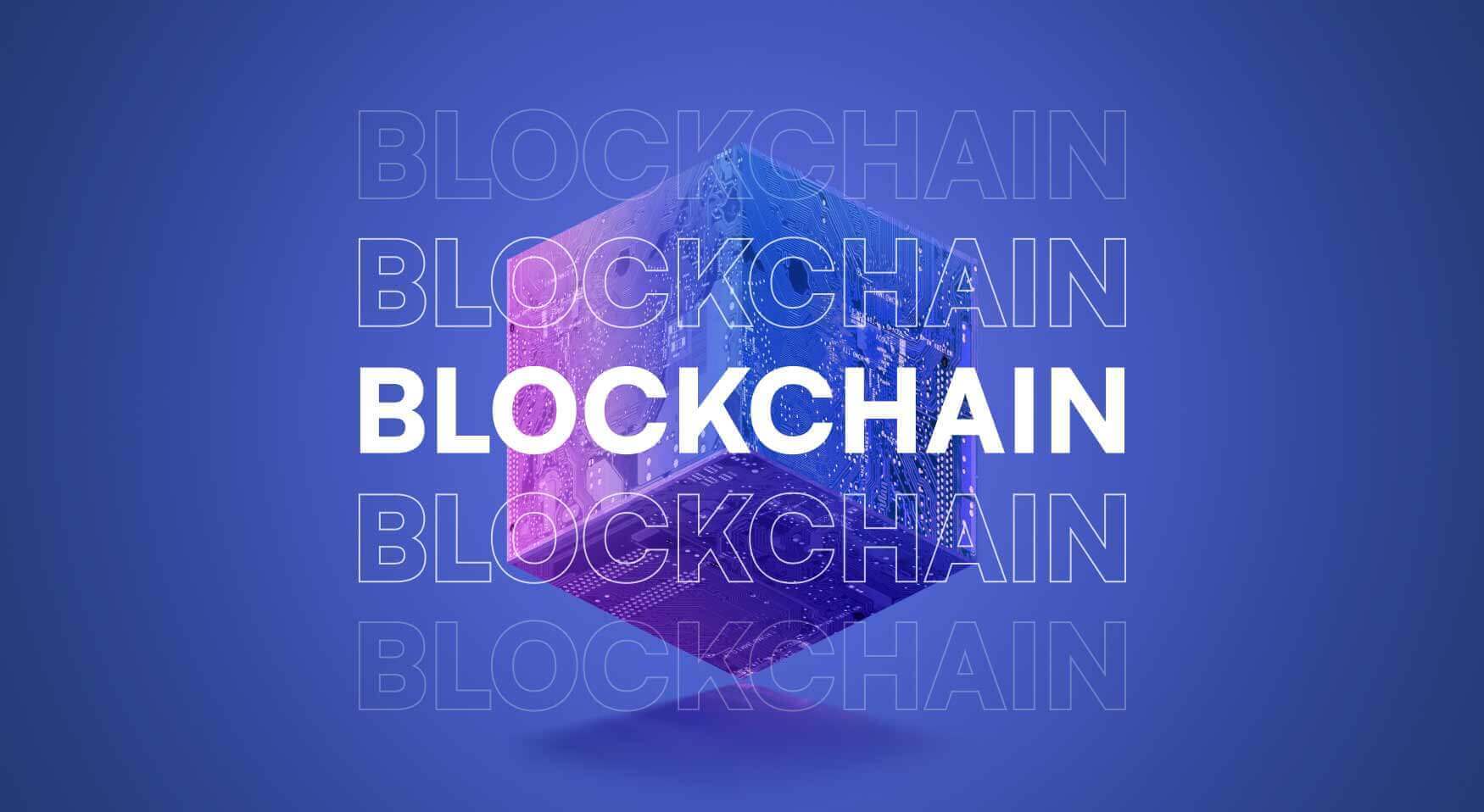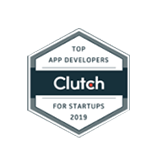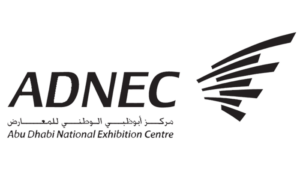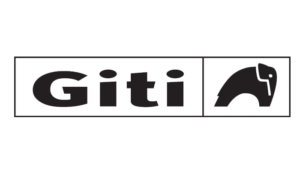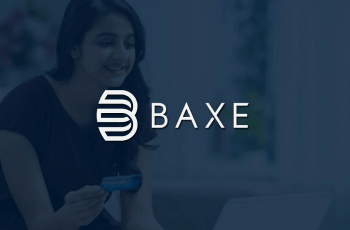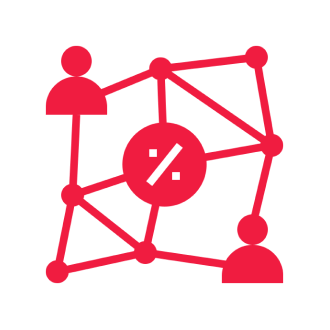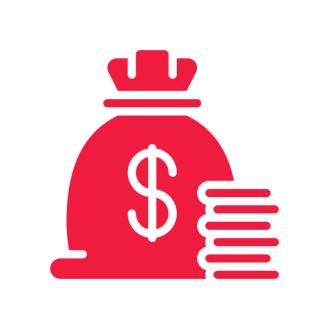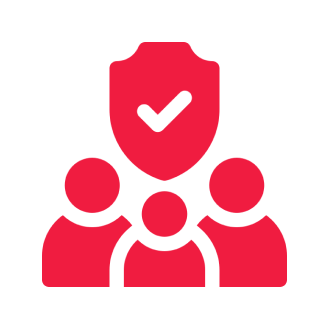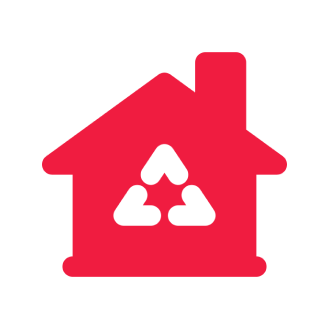Blockchain is a secure and transparent decentralized digital ledger maintained by a network of computers. It records transactions in an immutable way, making it difficult to tamper with stored data. Blockchain technology can revolutionize various industries by reducing costs, time, and the need for intermediaries.
There are four types of blockchain structures:
- Public Blockchains: Public blockchain is an open, permissionless, and fully decentralized blockchain network used primarily for cryptocurrency exchange development and mining.
- Private Blockchains: Private blockchain is permissioned and controlled by a single organization. Its restricted public access offers better data privacy and controlled access.
- Consortium Blockchains: Consortium blockchains are permissioned and governed by a group of organizations. It is more decentralized and secure than private blockchains. As such, it is suitable for trusted data sharing among multiple parties.
- Hybrid Blockchains: Hybrid blockchain is a blockchain network controlled by a single organization but with oversight from the public blockchain. It is suitable for use cases where data privacy and public blockchain benefits are needed.
- Enhanced Security: Blockchain creates an unalterable, encrypted record that prevents fraud and unauthorized activity. Personal data can also be anonymized, permissions are used to prevent access, and decentralized storage makes it difficult for hackers to view data.
- Greater Transparency: Blockchain uses a distributed ledger to record transactions and data identically in multiple locations. This provides full transparency, enabling members to view the entire transaction history, and virtually eliminates any opportunity for fraud.
- Instant Traceability: Blockchain creates an audit trail that documents the provenance of an asset at every step of its journey. This helps provide proof for consumers concerned about environmental or human rights issues or counterfeiting and fraud. Traceability data can also expose weaknesses in any supply chain.
- Increased Efficiency & Speed: Blockchain streamlines processes, eliminating the need for paper documentation and reconciling multiple ledgers. This results in faster and more efficient transaction completion, clearing, and settlement.
- Automation: Transactions can be automated with “smart contracts,” which increase efficiency and speed up the process even further. Smart contracts reduce human intervention and reliance on third parties to verify that the terms of a contract have been met.
- Blockchain in Healthcare: The use of blockchain technology enables the tracking and tracing of prescription medications throughout supply networks in the healthcare industry.
- Transfer Contracts & Wills: Blockchain technology allows for the creation of digital wills, contracts, and inheritances, also known as smart contracts, which legally bind all parties involved with the data stored on the blockchain network for easy retrieval and enforcement of the agreed-upon terms.
- Management of the Supply Chain: Blockchain's immutable ledger is ideal for real-time tracking of commodities as they move across the supply chain, offering various possibilities for enterprises carrying these items.
- Protection of Copyright & Royalties: Blockchain technology enhances the security and enforceability of copyright and ownership regulations for music, films, blogs, and other online content.
- Voting: Blockchain technology offers a potential solution to challenges associated with secure voting, using smart contracts and encryption to improve transparency, privacy and prevent fraud in digital voting systems.
- Cryptocurrency: Cryptocurrency is a prominent application of blockchain technology that enables global transactions with no territorial boundaries.
- Asset Administration: Blockchain is increasingly important in asset management, encompassing various assets such as fixed income, real estate, stock, mutual funds, commodities, and other alternative investments.
- Blockchain Applications for Anti-money Laundering: Blockchain anti-money laundering apps provide intrinsic features that can prevent money laundering by producing an immutable trail of records for authorities to trace the origin of funds, enabling system-wide risk analysis and reporting tools.
- Blockchain for Advertising: Advertising blockchain applications use distributed digital ledger technology to promote decentralization, providing advertisers and consumers security, traceability, and transparency.
Our blockchain development process is designed to ensure the successful implementation of blockchain applications. We follow a step-by-step approach that delivers high-quality, scalable, and secure blockchain solutions using the agile methodology.
Our process involves the following stages:
- Ideation: Understanding business requirements and ideating blockchain solutions.
- Platform Selection: Identifying the most suitable blockchain platform for the use case.
- Blockchain Ideation: Identifying necessary technology stacks for the application.
- PoC Development: Developing a Proof of Concept or Prototype.
- Visual & Technical Designs: Creating visual and technical designs that align with branding and user experience.
- Blockchain App Development: Developing high-quality, scalable, and secure blockchain applications.
- Deployment: Deploying the blockchain application on the selected platform.
- Maintenance & Upgrades: Providing ongoing maintenance and support services and making necessary upgrades.
Choosing the right blockchain development company is crucial for the success of your project. Since blockchain technology is still emerging, you must do your due diligence while selecting a custom blockchain development firm that meets your requirements.
To help you make the right choice, here are some questions to ask the blockchain application development firm:
- What is the company's experience in the market, and how many years have they been providing blockchain development services?
- What is the size of their team, and what is their level of expertise in blockchain technology?
- What industries have they worked with, and what kind of blockchain solutions have they provided?
- What blockchain platforms do they work on, and what is their expertise level on those platforms?
- Does the company provide end-to-end blockchain software development services, including consulting, development, deployment, and maintenance?
- What is the cost model for the company's services, and what is their pricing structure for different stages of the development process?
- What technology stacks do they use for blockchain development, and what is their approach to software development?
- How many blockchain projects has the company delivered, and what is its success rate?
The right blockchain software development company should be able to answer these questions and provide you with relevant information about their experience, expertise, and past projects. You can also ask for references and testimonials from their clients to validate their claims.
Before finalizing your decision, consider the company's communication skills, responsiveness, and flexibility, as these factors can significantly impact the success of your project. Finally, ensure that the company's values and work culture align with your vision and mission to ensure a successful and long-term partnership.
- Our blockchain experts work with you to build future-ready blockchain solutions that help you realize the potential of DLT with real-world use cases.
- We adopt the best blockchain application development models to adapt to ever-changing needs while at the same time ensuring on-time project delivery.
- Our blockchain project development methodologies are always flexible to accommodate your requirements.
- We have partnered with leading blockchain technology service providers and platforms to make cutting-edge technologies available to our customers.
- We have 7+ years of Fintech, blockchain, and AI industry expertise.
- We have received the prestigious Frost and Sullivan award for best blockchain technology company as a recognition for our technological innovation and strategic blockchain solutions development.
- Our diverse team of experts has created remarkable solutions for various digital startups, federal agencies, financial institutions, and Fortune 500 corporations.
- We specialize in delivering high-quality blockchain services to drive more business value.
The cost of blockchain development services depends on factors like the complexity of the project, the number of features and functionalities in the product, and the size and seniority of the development team.
The cost for simple projects should fall between $5,000 and $10,000. Moreover, projects that can be launched with our whitelabel platforms would cost between $5,000 and $10,000 with minimal customizations. Blockchain project prototyping and PoC development can cost less than $5,000.
Projects with higher complexities and requirements of a bigger development team could cost more. You can get a ballpark cost estimate for developing your project by sending us a message via the contact form above with high-level details about your project. You should also consider the ongoing maintenance and support costs, which can add 15-25% to the project's overall cost.
The development of simple blockchain projects, such as crypto token development, basic crypto wallet development, etc., can be completed in 1-2 weeks. Blockchain platforms like token sales platforms, advanced crypto wallets, defi staking platforms, etc., can also be launched in 1-2 weeks using our collection of 20+ whitelabel solutions. Time for the development of custom blockchain projects can take an average of 1 to 8 months, and complex projects, such as custom L1 development, can take 1-2 years.
However, a more complex blockchain application, such as a decentralized platform with multiple features and a large user base, could take much longer, potentially taking several years and requiring a large development team and substantial resources. In a nutshell, the time required to develop a blockchain application depends on the application's complexity, the development team's size and seniority, and the tech stack.
You should be clear on the possibilities and limitations of blockchain technology. We can help you with a no-obligation technology consultation to evaluate the technical and business feasibility of using blockchain for your project, identify the optimal tech stack, etc.
Blockchain applications require a robust and secure hosting infrastructure and data storage. Depending on the nature of your project, you may require investments in hardware, cloud services, or other infrastructure. Moreover, after the project's development, you may need to take care of the legal considerations. Understanding the relevant laws and regulations regarding licensing requirements, data privacy laws, and other regulations in the jurisdiction where the application will be developed and used is important.
Once your company is onboarded as a customer, you are eligible to participate in our partner program. The program offers more than $650K worth of credits and discounts on 200+ essential business tools and platforms.
We can also offer blockchain development grants for selected projects. Accubits is partnered with almost all prominent blockchains, and we can help you get development grants for your project's development and marketing expenses.
To avail of the blockchain development grants, you can contact us. Our consulting team will evaluate your project's technical feasibility, team strength, project vision, etc., to consider for the development grants. Please drop us a word to discuss your project idea and get started.







